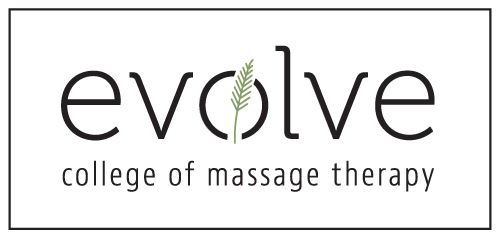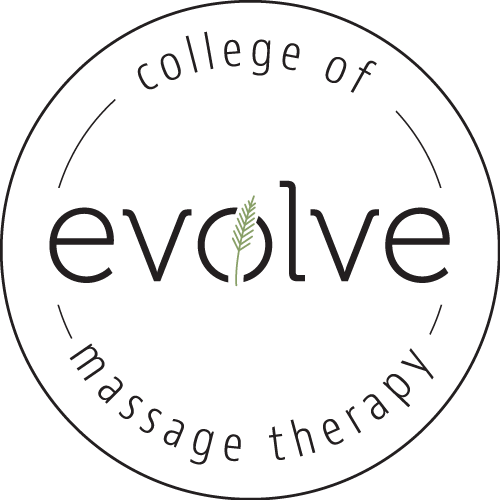In year two, our advanced year, students are provided with a theoretical and practical transition from relaxation massage to advanced remedial massage. Students explore in greater detail the physiological effects of their healing touch, the laws and principles related to working with depth and a multitude of techniques geared to the resolution of major soft tissue trauma. Along with in-class work, second year students also see more challenging cases in our specialty clinics.
• Applied Kinesiology
• Sports Massage/MET
• Assessment/Lab
• Joint Mobilization
• Business Fundamentals
• Associated Therapies
• Myofascial Release
• Supervision
• Advanced Treatment
• Advanced Myofascial Release
• Remedial Exercise
• Structural Therapy
• Clinic/Speciality Clinic Rotations
• Meridian Massage
• Prep for Outreach
• Practice Hours
APPLIED KINESIOLOGY (51 hrs)
The ability to identify movement impairment syndromes is crucial when assessing painful dysfunctions. In this course, students analyze the biomechanics of dynamic movement and how, through injury and muscle dysfunction, their movements can become impaired. Drawing from first year anatomy knowledge, this second year course enhances the ability to critically think and effectively identify muscle length/strength imbalances.
SPNF (54 hrs)
In this course students focus on the philosophy, physiology and practical applications of sports massage techniques. Specialized pre and post-event techniques, as well as injury rehab protocols, are explored in detail. Psychological aspects of working with competitive, elite athletes are discussed, as are the principles of sports nutrition, injury prevention, and training.
In the MET segment of the sports massage course, students gain a theoretical and practical understanding of how these techniques can be used in conjunction with a massage therapy treatment plan. Through the application of advanced MET, students learn to effectively stretch, strengthen and mobilize muscle, fascia and other soft tissue structures.
ASSESSMENT/LAB (96 hrs)
The cornerstone of second year, this course develops a student’s ability to analyze postural imbalances, movement impairment syndromes and a diversity of common injuries. Through the use of orthopedic assessment protocols, students learn to identify specific tissue and joint pathologies and the root of their causes. To complement this course, students will attend a hands-on practical lab where palpation skills, protocol sequence, and case study analysis will be covered for each region of the body.
JOINT MOBILIZATION (30 hrs)
One of many hands-on modules offered in our second year, joint mobilization is the study of joint mechanics and treatment approaches. Pathologies resulting in joint pain and/or stiffness are examined and treated using a variety of positions and mobilization protocols. Treatment plans utilizing traditional massage therapy techniques, used in conjunction with mobilizations, are also explored.
Each semester students receive support and guidance through our supervised mentorship program. All of our mentors are professional massage therapists who are also graduates with honours from our college.
BUSINESS FUNDAMENTALS (24 hrs)
In a profession such as ours, where therapists can chose from a multitude of career directions, a variety of business skills are mandatory to ensure success. In this course, students learn basic business principles and develop specific skills in areas such as marketing, promotion and small business accounting. Along with business concepts, licensing procedures throughout the country and the benefits of associations are also reviewed. As final course work, students develop a business plan specific to their career goals and aspirations.
ASSOCIATED THERAPIES (18 hrs)
Massage therapy is just one of many disciplines utilized in the treatment of musculoskeletal problems. The Associated Therapies course introduces students to alternative treatment approaches which often complement our own. Students are exposed to chiropractic, reflexology, and aromatherapy, among others. These half-day information workshops prepare students to make informed decisions when referring clients to other health care professionals and may even lay the foundation for further training in these areas.
MYOFASCIAL RELEASE (30 hrs)
The theory and practice of Myofascial Release techniques is just one of many hands-on approaches students study at the college. The anatomy of fascia and related structures and how they influence pain syndromes or restrict the complete range of motion are examined throughout this course. Alternative structural assessment protocols and scar tissue techniques are also developed in this practical class.
SUPERVISION (57 hrs)
ADVANCED TREATMENTS (162 hrs)
The ability to effectively treat complex conditions requires a variety of techniques. Musculoskeletal disorders often present a challenging array of signs and symptoms. Interpreting these appropriately, in order to develop effective treatment plans, requires specific assessment and intuitive skills. This course is designed to integrate the skills and knowledge of previous semesters in order to effectively assess and treat these complex cases. At the conclusion of the course, students have gained confidence in their ability to design appropriate treatment plans using critical thinking.
ADVANCED MYOFASCIAL RELEASE (30 hrs)
Advanced Myofascial Treatments focuses on understanding and critically observing how the myofascial structures of the body can be negatively affected by gravitational forces, sustained posture and acute incidents. This class expands on the material learned in Myofascial Release and Structural Therapy. We will focus on assessing and treating these myofascial-skeletal imbalances with goals of decreasing pain, encouraging balanced posture and increasing ranges of motion. A local-global-local approach to the treatment of specific areas of the body will be the focus of the class, alongside incorporating paramedical modalities, (previously learned), which will complement our myofascial treatments.
REMEDIAL EXERCISE (48 hrs)
Remedial exercise is often an integral component of any complete massage therapy session. Effectively correcting soft tissue and joint imbalances requires a variety of exercise approaches. In this course, students develop their ability to plan and implement remedial exercise programs that complement their massage therapy treatments. Exercise variables and progressions are reviewed in detail as are specific rehab protocols designed to restore or surpass pre-injury strength and flexibility.
STRUCTURAL THERAPY (18 hrs)
This course examines how alterations in healthy movement patterns through repetitive strains or poor posture can lead to injury, pain, and dysfunction. Correcting these imbalances, using a comprehensive approach, is the focus of this practical interactive class. Massage modalities developed in previous courses such as joint mobilization and myofascial release are incorporated, as are assessment and advanced soft tissue techniques. This course clarifies the role of all our modalities and complements our advanced treatment course in the final semester.
CLINIC/SPECIALTY CLINIC ROTATIONS/CASE STUDY PRACTICUMS (269 hrs)
The opportunity to treat patients in a supervised teaching clinic enables our students to apply classroom theory in a realistic therapeutic setting. The knowledge gained from working with real pathologies allows our students to feel confident that upon graduation they will be prepared to treat a variety of patient conditions. Throughout their clinical practicum, students develop their assessment, treatment and charting skills in an atmosphere of supportive supervision.
Our Specialty Clinic and case study practicums provide students an opportunity to work with special populations and unique conditions that may not present themselves in a regular clinic. Case studies allow students to assess and treat challenging cases over several treatment sessions. Providing therapy at special events is also a requirement of our program. Locations in the past have included The Manitoba Marathon and The Winnipeg Blue Bomber Training Camp.
MERIDIAN MASSAGE (21 hrs)
The Meridian Massage course is a conceptual bridging of eastern and western approaches to treating fascia and system wide imbalances. An understanding of Qi (chi) and its role in a healthy, balanced fascial system will also be covered throughout the course.
Specific course content will explore different patterns of disharmony relative to meridian channels and is intended to tie together the different relationships between the muscles, fascia and key acupuncture points. Throughout this interactive course, examples of common musculoskeletal disorders will be assessed and treatment options involving a more holistic perspective will be reviewed.

